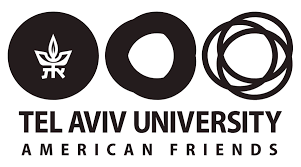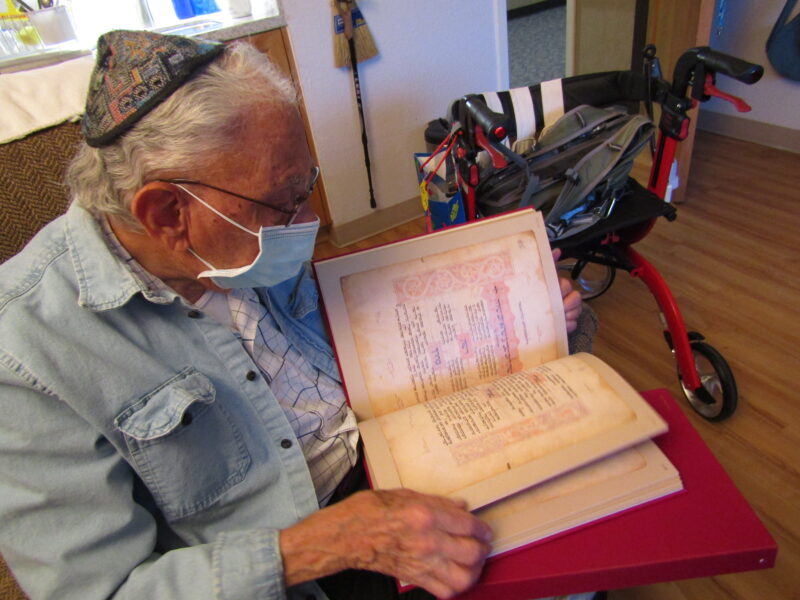Figuring out your life is no easy task. People such as Mozart knew what they were passionate about at an early age, while others take decades to find their calling.
Retired Arizona Rabbi Leo Abrami, a practitioner of Logotherapy, otherwise known as positive psychology, believes the answers to finding meaning and happiness in ones life can be discovered if one has the right tools. Abrami explains, “There are two important decisions we must make at an early age, even though we often lack the knowledge and experience which would enable us to make a wise choice. ‘What occupation should I pursue in my life?’ is the first one, and the other is ‘whom should I marry?’ ”
Logotherapy was developed by Holocaust survivor Viktor Frankl, an Austrian neurologist and psychiatrist, who explains his worldview in his famous book, Man’s Search for Meaning. Logotherapy takes a different approach than traditional therapy. For example instead of focusing on what upsets a person in a therapy session, Logotherapy asks what makes a person happy and what positive experiences they have had in their lives. Once found, the goal is to make changes in a person’s life focusing on what makes them happy.
Abrami, who took classes in college with Viktor Frankl and worked as a rabbi for many years, now teaches seminars and works with individual clients worldwide. He’s recognized as an expert in helping people find the right path in their lives and how to make their lives meaningful. He was recently invited to conduct seminars and lectures at the University of Moscow in Russia and the Sigmund Freud University in Paris.
Abrami radiates good energy like a beam of sunlight and is always positive and enthusiastic. It’s hard to grasp, then, that he experienced a challenging childhood.
“I was born in Paris, some eight years before the Nazis invaded France,” he says. “By 1941 the French police, supervised by the German police, began arresting Jews and deporting them to Germany. As the arrests intensified during the following year, my mother asked two farmers in Normandy to take my brother and me as paying guests; my brother was placed in one farm and I in another one nearby. We were told never to reveal to any one that we were Jewish, because such a disclosure might have endangered our life and that of the farmers who were taking care of us.
“This experience taught me the importance of being resilient and never giving up – and always looking for ways to escape danger. I also learned people have different values; whereas the Nazis and their French collaborators were intent in doing us harm, some other people were willing to protect us from their hostility.”
His mother, who lived in Paris during the war, was resilient and would always find ways of avoiding being caught by the police. She wasn’t afraid to go straight to a German soldier and ask for help if necessary. Abrami believes her amazing self-confidence and unwavering faith helped the family survive the war.
Abrami studied psychology at the University of Geneva. A French doctor who was auditing one of his classes suggested to Abrami that he undergo psychoanalysis and gave him the phone number of his analyst. He was open minded and intrigued and started analysis with Professor Charles Baudoin, a former assistant of Carl Gustav Jung; the analysis lasted four and a half years. These sessions led Abrami to pursue becoming a rabbi, and he attended the Hebrew Union College in Cincinnati and was ordained as a Reform rabbi three years later.
However, his love for psychology did not disappear. Coincidentally, Professor Viktor Frankl was invited to lecture at the University of Cincinnati and the Hebrew Union College. Abrami attended the classes and was so moved by Frankl’s teachings he became a student and a practitioner of Logotherapy.
“What attracted me to Logotherapy is that it’s compatible with the teachings of mysticism and especially Jewish spirituality,” Abrami says. “I’m convinced its ideas and assertions had always been part of my aspirations. Frankl helped me to become fully aware of them. Most psychotherapists in our days are endeavoring to help their patients solve their psychological problems. Logotherapy proposes to help them discern the meanings and ideals that are lying dormant in the deep recesses of their being, and then realize them in their daily life. If they do not do that, they will keep searching until they find it, but many will unfortunately end their earthly career without having found out what would have brightened and enlightened their lives and brought them happiness.”
Abrami conducts classes and seminars in Arizona and also works with individual clients to help them find meaning and happiness. He teaches at the Arizona Institute of Logotherapy and the ASU Lifelong Learning Institute, Sun City Grand, AZ. He is the author of Une Démarche Thérapeutique, La Logothérapie (in french) and two autobiographical books.
Leo Abrami: logotherapy.us | [email protected]





